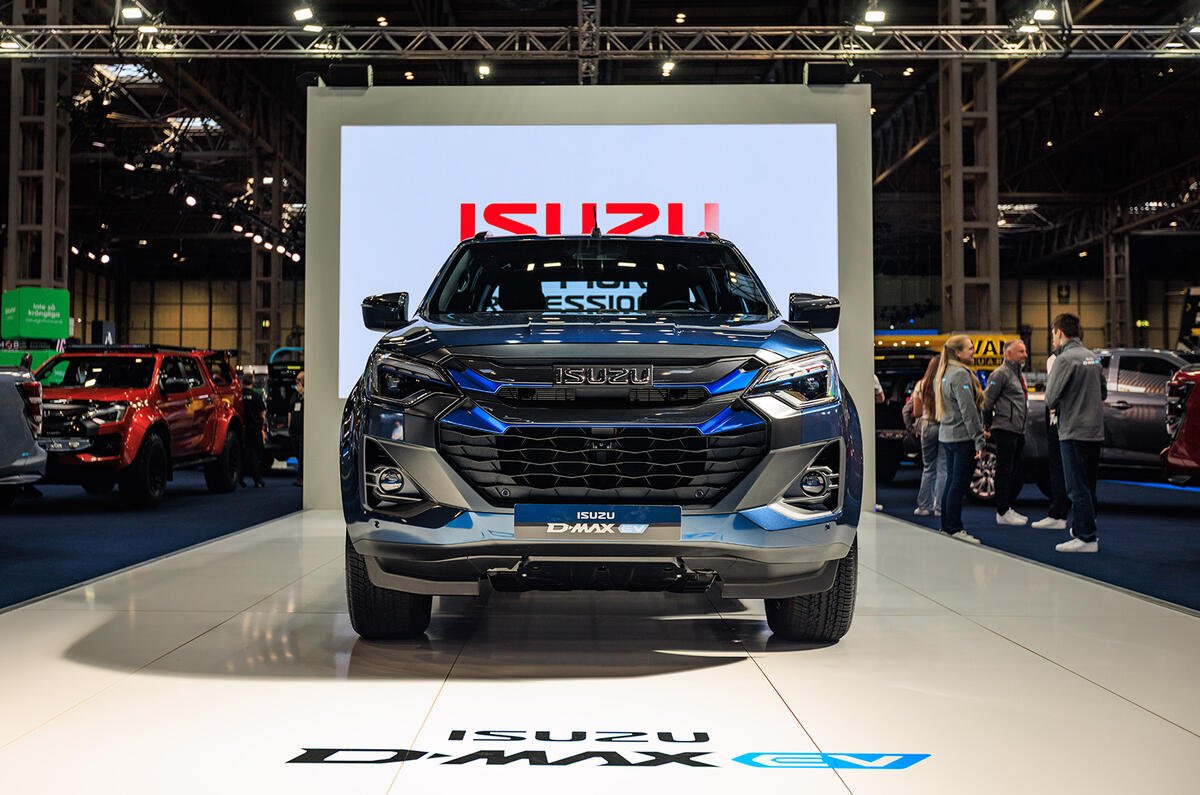

Isuzu is seeking a foothold in the UK’s fast-growing salary-sacrifice market with its new D-Max EV, thanks to company car tax changes that heavily incentivise electric double-cab pick-up trucks.
Since April 2025, HMRC has treated most new double-cab pick-ups (which have four doors and two rows of seats) as passenger cars instead of light commercial vehicles (LCVs), closing a loophole that made them tax-efficient company cars compared with similarly sized SUVs.
Those reforms introduced CO2 emissions-capped tax relief (known as capital allowances) for businesses buying or leasing trucks while also pushing them into the emissions-weighted benefit-in-kind (BIK) tax system instead of using the flat rate for LCVs.
It’s a significant change. Most double-cabs have diesel engines, emit more than 200g/km of CO2 and fall into the highest BIK tax band of 37%, burdening drivers with a five-times higher tax bill than they would have faced under the old system.
Fleets with vehicles that were already on the road before 6 April can continue to use the LCV tax system until 5 April 2029 or whenever the truck is sold on.
The rush to register vehicles before that deadline created a boom-and-bust market, with volumes up 19% year on year in the first quarter then down 3% in the following six months, according to the Society of Motor Manufacturers and Traders (SMMT).
However, CO2-based BIK tax also creates opportunities for the pair of low-emission plug-in hybrid (PHEV) and electric trucks sold in the UK – which will become a trio when deliveries of the D-Max EV begin next year.
Isuzu UK’s national sales manager, Neil Scott, has high hopes for the newcomer, which has a one-tonne payload and a 3.5-tonne towing capacity that the Maxus eTerron 9 EV can’t match and more tax-efficient 0g/km emissions rating than the 71g/km of the Ford Ranger PHEV.
“Recent changes to benefit-in-kind and capital allowances have reshaped the double-cab pick-up market,” he told Autocar. “The D-Max EV opens new doors for us, especially with lifestyle, company car and salary-sacrifice customers who want to embrace electrification. It’s an exciting new option as the market transitions towards EVs.”
At 0g/km, the D-Max EV is taxed at 3% of its list price, which means monthly BIK tax bill of around £30 for a 20% income tax payer. That compares with at least £240 for diesel versions or £67 for drivers on the old LCV flat-rate system.
Latest Reviews
Citroen C3 Aircross
Citroen C3 Aircross
Citroen e-C3 Aircross
Citroen e-C3 Aircross
Suzuki eVitara
Suzuki eVitara
Volvo ES90
Volvo ES90
Mercedes-Benz G-Class electric review
Mercedes-Benz G-Class electric review
Read our review
Car review
Isuzu D-Max
Hard-working, hard-wearing pick-up turns to fresh style and equipment to keep fuelling its rising popularity
Read our review
It also qualifies for the full salary-sacrifice incentives, with drivers paying low-rate BIK tax instead of being taxed on the much higher value of the monthly rentals being deducted from their gross wages. The threshold where this flips is 75g/km, which excludes all diesel pick-ups.
However, there are no plans to offer specific ‘lifestyle’ versions of the D-Max EV, said Scott.
“For retail and lifestyle buyers, the appeal often lies in 4×4 ability and everyday usability, while business customers remain focused on payload. We’re able to serve both needs, ensuring lifestyle drivers get the versatility they want and business customers maintain the vital payload capacity they depend on.
“Specialising in pick-ups means we’re fully invested in making them part of the zero-emission future. The D-Max EV demonstrates our commitment to staying ahead of regulations while continuing to deliver the vehicles our customers need.”
Join our WhatsApp community and be the first to read about the latest news and reviews wowing the car world. Our community is the best, easiest and most direct place to tap into the minds of Autocar, and if you join you’ll also be treated to unique WhatsApp content. You can leave at any time after joining – check our full privacy policy here.

